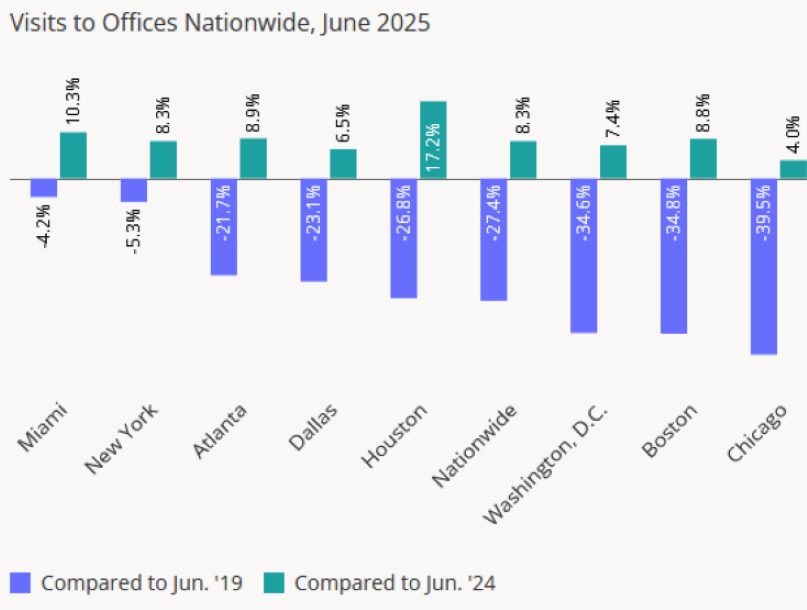Financial Markets After the Bell–October 8
Buy! Sell! Buy! Sell! It was another day like that among stock traders, but ultimately the Dow Jones Industrial Average was down 189 points, or 2 percent, today after being up as much as 250 points. In the last five days, the Dow has lost about 13 percent of its value. Today the Nasdaq lost…
Buy! Sell! Buy! Sell! It was another day like that among stock traders, but ultimately the Dow Jones Industrial Average was down 189 points, or 2 percent, today after being up as much as 250 points. In the last five days, the Dow has lost about 13 percent of its value. Today the Nasdaq lost 0.8 percent and the Standard & Poor’s 500 was down 1.1 percent. American International Group, lately embarrassed by their exec’s fondness for luxury resorts, is getting another $37.8 billion loan, this time from the New York Federal Reserve. The money comes in addition to the $85 billion that the Federal Reserve Board agreed to lend AIG last month. In return, the pummeled insurance giant is giving the New York Fed investment-grade, fixed-income securities that it used to lend out for fee income. Earlier in the day, the I.M.F.–that’s the International Monetary Fund, not the Impossible Missions Force–warned today that the governments of the developed world need to act together to stem the financial crisis, or it could become “increasingly disorderly and costly for the real economy.” The warning was included in the organization’s Global Financial Stability Report. Especially vulnerable, according to the I.M.F., are Central and Eastern European countries, which are highly dependent on credit. And poor Iceland. The near-Arctic nation’s banking system is groaning under the weight of debt that’s about 12 times the size of the country’s economy–veritable Third-World territory, even though (for now) Iceland has one of the highest standards of living in the world. By comparison, if U.S. banks had debt that large, the total would be roughly $156 trillion. Things may be bad in the U.S. and Europe, but not that bad. Today the Icelandic government canceled plans to buy a 75 percent stake in the nation’s third-largest bank, Glitnir Bank HF, after discovering that that bank was in exceedingly bad shape. The government has also ditched plans to peg its currency, the krona, to the euro at 131 krona to the euro, because absolutely no one was willing to buy krona at that price. Today, the euro buys between 280 and 330 krona. Here’s a thought: Maybe Sam Zell could buy the country. A litigation halt between Wachovia, Citi and Wells Fargo scheduled to expire at noon today was extended for 48 hours, presumably at the request of the Federal Reserve, which seems eager to knock some heads together. A spot of unusual good news: More American signed contracts to buy existing houses in August than in July–7.4 percent more, the largest increase since October 2001, when all those contracts put on hold in September 2001 were actually signed. The western states saw the largest increase: 18.4 percent. The National Association of Realtors attributed the rise the fact that houses are less expensive now, especially in markets like California. The question now is what this figure will be in September, when the financial markets started roiling. In the retail world, September sales numbers are filtering in. It’s no surprise that they aren’t very peppy on the whole. Still, Wal-Mart managed to report a 2.4 percent rise in same-store sales in September, compared with a year ago–slightly less than the company anticipated, but still growth. “Always low prices” resonates these days. On the other hand, the likes of Neiman Marcus had a 12.9 percent decline in same-store sales for September 2008, as compared with a year ago. Recessions since the 1980s haven’t hit the carriage-trade market that hard, but it could be different this time around. Governments around the world are making nearly simultaneous, if not coordinated efforts–including interest rate cuts–to staunch the bleeding of economies worldwide, but will it do any good? “Until banks start behaving like banks, all these moves, including cuts in interest rates, aren’t going to do any good,” Peter Morici, professor at the Robert H. Smith School of Business of the University of Maryland, told CPN today. “Despite all the new liquidity at their disposal, they aren’t lending.”






